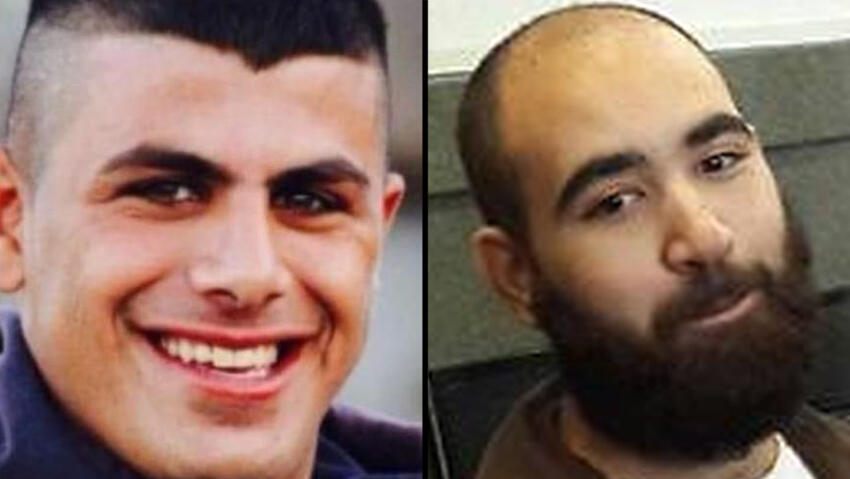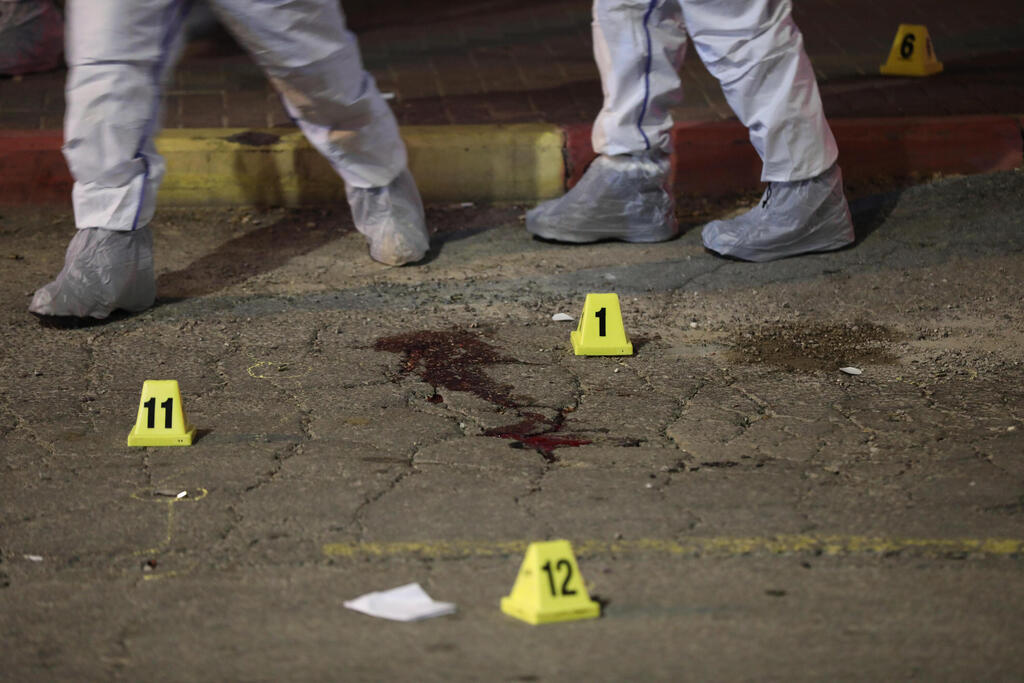Getting your Trinity Audio player ready...
Sunday's terrorist attack was carried out by two Umm al-Fahm residents —
the second time Israeli nationals commit murderous attacks against their fellow citizens in the last four days, and authorities are investigating whether both instances were driven by Islamic State ideology.
This is no longer a one-time thing, and certainly not happenstance. Seven out of the nine most recent terrorist attacks were carried out by Israeli citizens, most of whom were residents of East Jerusalem.
CCTV footage of the attack in Hadera
But this time around in Hadera, much like in Be'er Sheva, it seems that the aggressors had a previous terrorist background and were linked to the Islamic State.
Be'er Sheva attacker Mohammad Abu al-Kian had previously served a four-year sentence in an Israeli prison for his ties to the extremist group and was supposed to be monitored by the Shin Bet — but ultimately managed to sneak under its radar. The security agency claimed it was keeping a close tab on him and saw that his zealotry had tapered off.
In the case of the most recent attack in Hadera, it seems that at least one of the two gunmen had been previously linked to the Islamic State. And with all due respect, this is starting to look like a scandal on the part of the Shin Bet, which failed to turn resources against terrorist sleeper cells working from within Israel.
Both the IDF and the Shin Bet predicted that if tensions escalated during the month of Ramadan, it would happen in Jerusalem and the West Bank. But the latest attack wasn't spontaneous, it was premeditated. The terrorists were armed to the teeth and well-trained — and the Shin Bet still missed them.
In its defense, the Shin Bet's purview is the West Bank rather than Israeli Arabs, but still, it must do better.
We tend to look at last May's intercommunal violence as a wake-up call for the State of Israel in regards to a potential multi-front conflict, especially vis-à-vis our Arab citizens, but the Shin Bet did not particularly excel in giving us a forewarning about the impending events, nor did it during the riots.
The organization is admittedly limited in its capabilities, but it seems like it did not learn its lesson from last year's happenings, and certainly not when it comes to whom it is supposed to be monitoring.
This could be an outgrowth of what former Shin Bet officials call years-long neglect of the agency's Arab Department. Despite its exceptional performance against terrorism in the West Bank, which is studied the world over, the organization has failed time and time again when it comes to Israeli Arabs — and this requires a rude awakening.
However, the lessons do not end there. Israel has yet to establish a national guard based on reserve Border Police forces, and the police are still waiting for the budgets that would allow it, or the military will have to do the job for them next time around.






